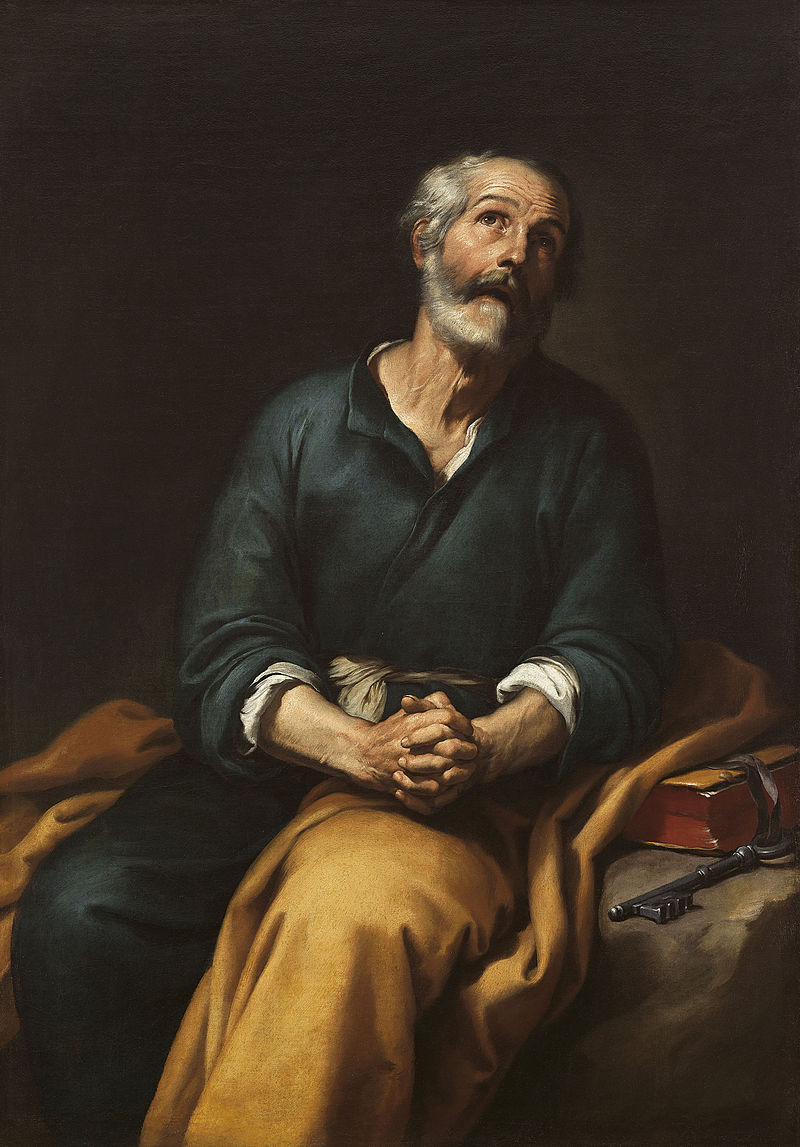"You are Peter, and upon this rock I will build my Church, and the gates of hell shall not prevail against it." (Matthew 16:18)
The Fisherman Who Became the First Pope
Saint Peter stands as one of the most pivotal figures in all of Christendom. Born Simon, son of Jonah, in the village of Bethsaida near the Sea of Galilee, this humble fisherman was destined to become the cornerstone upon which Christ would build His Church. Peter's journey from simple fisherman to the first Vicar of Christ exemplifies God's ability to work through ordinary people to accomplish extraordinary things.
Called by Christ
When Jesus first encountered Peter and his brother Andrew casting their nets into the sea, He offered them a profound invitation: "Follow me, and I will make you fishers of men." With remarkable faith, Peter left behind his livelihood to follow the Master. This ready response demonstrated the openness of heart that would later enable him to recognize Jesus as "the Christ, the Son of the living God."
Witness to Divine Glory
Peter was privileged to be among Christ's innermost circle of disciples. Along with James and John, he witnessed miraculous events hidden from others—the raising of Jairus' daughter, the Transfiguration on Mount Tabor, and Jesus' agony in the Garden of Gethsemane. Through these experiences, Peter was being prepared for his monumental role in salvation history.
The Rock of the Church
The most significant moment in Peter's discipleship came at Caesarea Philippi when Jesus asked, "Who do you say that I am?" Peter's confession—"You are the Christ, the Son of the living God"—prompted Jesus to bestow upon him a new name and an extraordinary commission: "You are Peter, and upon this rock I will build my Church... I will give you the keys of the kingdom of heaven."
This pivotal exchange established the papacy itself. The keys symbolize Peter's unique authority to bind and loose, to make doctrinal decisions guided by the Holy Spirit. Catholics treasure this moment as the divine institution of the papal office that continues unbroken to this day.
A Journey of Growth Through Weakness
Peter's path was not without stumbles. His denial of Christ three times during the Passion stands as a testament to human frailty. Yet this failure became the catalyst for profound spiritual growth. After the Resurrection, Jesus specifically sought out Peter at the Sea of Galilee, giving him the opportunity to profess his love three times and receiving the command to "Feed my sheep."
This beautiful restoration reminds us that the Church is built not on human perfection but on sincere repentance and Christ's boundless mercy. Peter's weakness became the channel for greater dependence on divine grace—a pattern that would repeat throughout Church history.
The Early Church's Fearless Leader
Following Christ's Ascension and the descent of the Holy Spirit at Pentecost, Peter emerged as the undisputed leader of the early Christian community. The Acts of the Apostles records his bold preaching, miraculous healings, and pivotal decisions that shaped the nascent Church.
Peter's authority was evident when he declared that Gentile converts need not observe all Jewish ceremonial laws—a momentous ruling that opened Christianity to all peoples. His leadership during those formative years established patterns of governance, worship, and doctrinal development that would guide the Church through the centuries.
Martyrdom and Legacy
According to sacred tradition, Peter eventually traveled to Rome, where he led the Christian community and established his episcopal see. During Nero's persecution, Peter was crucified upside-down around 64-67 AD, considering himself unworthy to die in the same manner as his Lord.
St. Peter's Basilica in Vatican City now stands over his burial site, symbolizing the enduring nature of his office. For nearly two millennia, his successors have continued his ministry as Shepherd of the Universal Church.
Peter's Continuing Presence
For Catholics, Peter is not merely a historical figure but a living presence through:
The continuing office of the papacy, which extends his ministry as chief shepherd His New Testament epistles, which continue to nourish the faithful His intercession before the throne of God as a powerful heavenly advocateConclusionPope Saint Peter embodies the paradox at the heart of our faith—that God chooses imperfect vessels to carry divine treasures. Through his struggles, triumphs, and ultimate martyrdom, Peter reveals the transformative power of Christ's love and the enduring nature of the Church founded upon him.
As Catholics venerate Peter, we celebrate not merely a man, but Christ's wisdom in establishing a visible, unified Church built upon the rock of apostolic authority. In Peter and his successors, we find the living link to Jesus Himself—the guarantee that, despite human weakness, the Church will prevail against all adversities until the end of time.
"Simon, Simon, behold, Satan has demanded to sift you like wheat; but I have prayed for you, that your faith may not fail; and you, when once you have turned again, strengthen your brothers." (Luke 22:31-32)

Please or Login to leave Comments